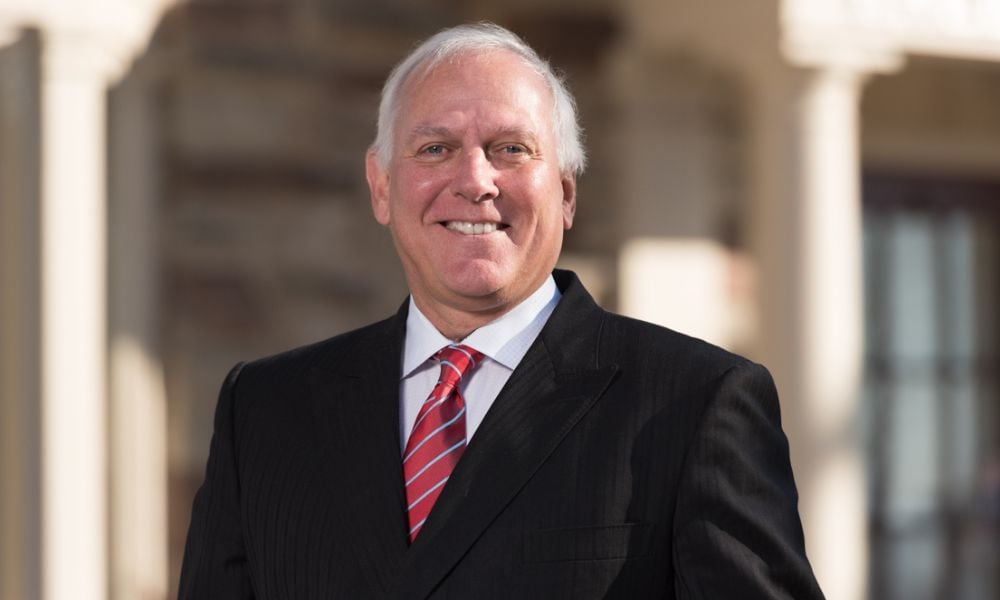Advisor is concerned people haven't saved enough or done the required planning

David Little, the senior wealth advisor for Blue Oceans Private Wealth in Burlington, Ontario, is concerned about a retirement trend that he’s been seeing at this end of the pandemic.
People who are in their 50s and early 60s are retiring early from their jobs, even though they haven’t done all the financial planning and saving that they need to ensure they can weather it.
“There’s a large increase in people retiring, which is a significant change. A lot of people just aren’t happy going back to the grind,” Little told Wealth Professional.
“I try to get people to plan their retirement at least five years in advance: to set their retirement goals and decide what their expenses are, what debts they should pay, and what their income sources will be, and top up their savings. But, when you see people like that coming in, they’ve retired, but eliminated that pre-planning.”
One client quit his job without ensuring he had enough to retire on. Little said he walked away from a $100,000 a year job ad wants to travel, but now only has a $36,000 a year retirement income.
Another pair retired in January and overspent by $10,000 on their first trip. They’re already booking their next trip – even though they could run out of funds long before they die.
“I’ve had clients whom I’ve had to tell: ‘your expectations for the amount of income that you want are just not realistic. Like you’re not even close, maybe 50%, of what you need to have’,” he said. “I’ve had to say you’re not even six months into your retirement and you’ve entirely imploded your retirement income budget.”
None of the clients are 65, but they’ve taken Canada Pension Plan (CPP) benefits early, which Little said means that they’re forfeiting 7.5% a year for each year that they do that before they’re 65. If they’re only 62, that means losing 21% of their CPP benefits.
Then the markets are down 5%, so there’s no buffer on their investments.
Couple that with rising inflation, higher oil, gas, air travel costs, and higher meals and accommodation fees, Little is concerned these early retirees are brewing a recipe for disaster.
“That’s having a fairly challenging impact, but they won’t realize until it’s down the road,” said Little. He expects it could take up to five years, when more of their funds are depleted and their options tighter, before they realize what they’ve done. But by then, it may be too late to turn it around with the current resources that they have.
“Retiring when you’re in your 50s was a marketing jingle, Freedom 55,” said Little. “Those who retire at 55 not only miss out on 10 years of accrual of their assets, which could double in most situations, they’re also disassembling their assets to create income for themselves. So, they’ve not only missed out on the growth of that money, they’ve also now started to use it. That’s got a double whammy effect. The only way people can overcome that is by selling their house in their early 70s because they just won’t have enough money left.”
Seeing these early retirement challenges is stressful for advisors, he said, because “we always want to make sure we’re doing the best job for our clients. We try to build their portfolios, so we have a buffer there, and we try to protect a couple of years income. We call those cash wedges.
“But, you can’t really protect them from themselves. You can only do so much and it’s not your responsibility to make up for excessive spending. Your job is to put a plan in place and monitor it, and make sure that the goals and objectives that clients have set for income and spending are met. And, if they decide to blow past that, there’s not really much we can do.”
Ideally, Little prefers to work with people with more runway to develop a retirement plan before they retire so they can plan their resources to last until they are at least 90. His wealth legacy retirement income plan helps them see what annual income they expect to have during that time.
When they review that annually, he can also show clients what happened to their returns in the previous year, so they can adjust their spending as required since it’s impossible to know all the variables that could change – taxes, health, rates of return, inflation – before then to know exactly what they need. Having that plan allows them to know how much of their RRIF, TFSA, and savings they need to use and whether they have to sell their homes to top up their savings.
“It’s very important to make sure that your clients are systematically and intellectually disassembling their savings to make sure they don’t run out and they don’t create a lot of income tax,” he said.
“That allows them to have the same confidence that they had when they were doing the saving side of it,” he said. “If they don’t have a retirement plan, I don’t know how they could possibly have the peace of mind going into retirement. I don’t know how they can even think about having that comfort zone mentally that you know everything’s going to work out without having that plan.”
David Little was recognized as the Best Financial Advisors in Ontario. Read the full report here.



